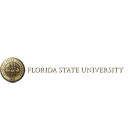- News and articles
- Find usIDP AustraliaIDP BahrainIDP BangladeshIDP CambodiaIDP CanadaIDP ChinaIDP EgyptIDP GhanaIDP Hong KongIDP IndiaIDP IndonesiaIDP IranIDP JordanIDP KenyaIDP KoreaIDP KuwaitIDP LebanonIDP MalaysiaIDP MauritiusIDP Middle EastIDP NepalIDP New ZealandIDP NigeriaIDP OmanIDP PakistanIDP PhilippinesIDP Saudi ArabiaIDP SingaporeIDP Sri LankaIDP Taiwan, ChinaIDP ThailandIDP TurkeyIDP UAEIDP VietnamIDP Corporate
- Social
- English
- Where we operate
- Courses
- Scholarships
- IELTS
- About IDP
- Student Essentials
- News and articles
- Find us
- Find us
- Find nearest IDP offices
- IDP Australia
- IDP Bahrain
- IDP Bangladesh
- IDP Cambodia
- IDP Canada
- IDP China
- IDP Egypt
- IDP Ghana
- IDP Hong Kong
- IDP India
- IDP Indonesia
- IDP Iran
- IDP Jordan
- IDP Kenya
- IDP Korea
- IDP Kuwait
- IDP Lebanon
- IDP Malaysia
- IDP Mauritius
- IDP Middle East
- IDP Nepal
- IDP New Zealand
- IDP Nigeria
- IDP Oman
- IDP Pakistan
- IDP Philippines
- IDP Saudi Arabia
- IDP Singapore
- IDP Sri Lanka
- IDP Taiwan, China
- IDP Thailand
- IDP Turkey
- IDP UAE
- IDP Vietnam
- IDP Corporate
- Social
- Language Switcher
- IDP Education /
- Colleges and Universities /
- United States /
- Florida State University /
- Doctor of Philosophy in Eng...

Doctor of Philosophy in English - Literature, Media, and Cultural Studies
At FLORIDA STATE UNIVERSITY

Location
United States
Qualification
Ph.D.
Fees
USD22270
(2025)
Duration
6 Semester(s)
Next intake
10 May 2025
Entry Score
6.5
IELTSCourse info
Our nationally-recognized History of Text Technologies Program (HoTT) extends from the History of the Book to Digital Humanities as a means of exploring how the history of the forms of texts is also a history of human culture in its largest sense, a history that speaks to how we use texts to establish ways of thinking, means of knowing, and practices of living. In addition to HoTT, we continue to push the boundaries of our scholarship through other highly acclaimed programs. Our faculty and students continue to break new ground in researching a wide cross-section of time periods, from medieval literature to early modern dramas to contemporary American poetics. Film and media studies, a fast-growing discipline, have also found a home here as we continue to innovate and grow.
The Graduate Program in English offers the Masters of Arts (M.A.), Master of Fine Arts (M.F.A.) and Doctor of Philosophy (Ph.D.) degrees. Students in the M.A. program emphasize one of two tracks: (1) Literature, Media, and Culture, (2) Rhetoric and Composition. M.F.A. students emphasize Creative Writing. Students pursuing an M.A. in Literature, Media, and Culture must complete the Capstone Course in Professional Writing (ENG 5971). See the Graduate Handbook for description. Students in Rhetoric and Composition may write a thesis or take a portfolio examination. Creative Writing students present a body of creative work for the thesis. All Ph.D. students satisfy core requirements in literature, language study, and literary theory. Students then take comprehensive examinations and write dissertations in fields such as Medieval and Early Modern British Literary and Cultural Studies (through 1660), British and Irish Literary and Cultural Studies: 1660-1900, Post-1900 Literary and Cultural Studies (American, British, Irish), American Literary and Cultural Studies to 1900, African-American Literary and Cultural Studies, History of Text Technologies, Feminism, Gender, and Sexuality Studies, Colonial, Postcolonial, and Transnational Literary and Cultural Studies, and Publishing and Editing.
- Scholarships
- Internships
Entry requirements for Florida State University
Statement of Purpose
R'sum/Curriculum Vitae
Writing Sample (see specifics below)
Three recommendation letters
Unofficial Transcripts (from every university attended)
Internet based TOEFL (IBTOEFL): 80
Paper based TOEFL (TOEFL): 550
International English Language Testing System (Academic IELTS): 6.5
Application Deadline
The application deadline isn't available Speak to an IDP counsellor for more detailed information
Further information
If you aren't eligible for the above entry requirements, you might ant to explore pathway options at Florida State University. If you want to find out more, speak to our counsellors.
THE World Ranking
301st / 1250
THE World RankingWhat our students think
We’ve haven’t received any reviews for this institution yet.
Recommended for you
- THE World Ranking:8
- Ph.D.
- San Francisco , United States
- Next intake:08/2025
- Entry Score: IELTS 7.0
- USD27366 (2025)
- THE World Ranking:601
- Ph.D.
- Oklahoma City , United States
- Next intake:01/2025
- Entry Score: IELTS 7.0
- USD17890 (2025)
- THE World Ranking:501
- Ph.D.
- Rochester , United States
- Next intake:01/2025
- Entry Score: IELTS 6.5
- USD23560 (2025)
- THE World Ranking:64
- Ph.D.
- Boston , United States
- Next intake:09/2025
- Entry Score: IELTS 7.0
- USD68612 (2025)
- THE World Ranking:98
- Ph.D.
- Atlanta , United States
- Next intake:08/2025
- Entry Score: IELTS 6.0
- USD46800 (2025)
- THE World Ranking:601
- Ph.D.
- Jackson , United States
- Next intake:08/2025
- Entry Score: IELTS 6.5
- USD27487 (2025)
- THE World Ranking:4
- Ph.D.
- Cambridge , United States
- Next intake:09/2025
- Entry Score: IELTS 6.5
- USD54032 (2025)
- Ph.D.
- Detroit , United States
- Next intake:05/2025
- Entry Score: IELTS 6.5
- USD25346 (2025)
Your action plan
Step 1
Shortlist your courses
Choose the best three courses you’re most likely to pursue.
Step 2
Check your eligibility
Get an instant in-principle offer for courses with the IDP FastLane tag.
Step 3
Apply through IDP Live
Fill out the form once and use it to apply to multiple courses.
How does IDP FastLane work?
With the FastLane 'Offer in Principle', you'll know in minutes if you'll be accepted!
Select an institution and course
Create your academic profile
Submit your application for an 'Offer in Principle'
Your chosen institution(s) will send you a decision in minutes!
Get ready to apply with an expert counsellor




